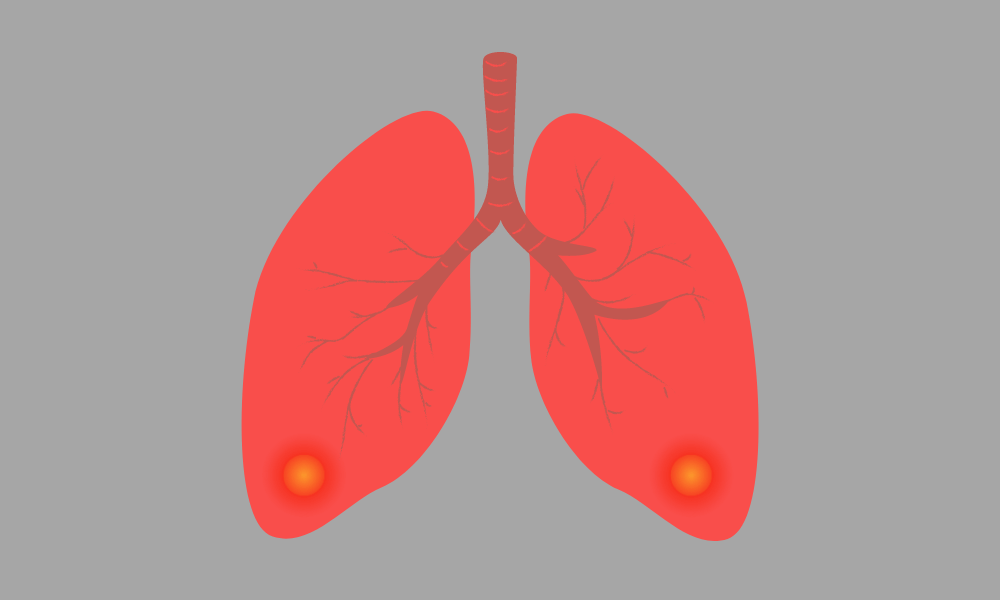Lung Cancer Treatment in Bangalore
Lung cancer is a type of cancer that originates in the lungs and can spread to other parts of the body. It is primarily caused by smoking, but non-smokers can also develop lung cancer. There are two main types of lung cancer: non-small cell lung cancer (NSCLC) and small cell lung cancer (SCLC). Early detection and prompt treatment are essential for better outcomes and improved quality of life.
What is Lung Cancer?
Lung cancer is a serious condition that develops in the tissues of the lungs, often due to long-term exposure to harmful substances like tobacco smoke, air pollution, or asbestos. It is one of the most common types of cancer globally and can be life-threatening if not detected and treated early.
Early detection plays a vital role in effective lung cancer treatment. Regular screenings and early diagnosis can significantly improve the chances of successful outcomes and enhance the quality of life for patients.

Symptoms
In its early stages, lung cancer may not cause noticeable symptoms. As the cancer progresses, some common symptoms may include:
- Persistent cough that worsens over time.
- Shortness of breath or wheezing.
- Chest pain that worsens with deep breathing or coughing.
- Unexplained weight loss and loss of appetite.
- Fatigue and weakness.
- Coughing up blood or rust-colored sputum.
If you experience any of these symptoms, especially if you are a current or former smoker, it is essential to consult a healthcare professional for further evaluation.
Causes
The primary cause of lung cancer is smoking, including cigarettes, cigars, and pipe tobacco. Exposure to secondhand smoke can also increase the risk of lung cancer. Other risk factors that may contribute to the development of lung cancer include:
Radon exposure: Radon is a naturally occurring radioactive gas that can seep into buildings and increase the risk of lung cancer.
Occupational exposure: Certain workplace substances, such as asbestos, arsenic, and certain chemicals, can elevate the risk of lung cancer.
Family history: A family history of lung cancer may increase the likelihood of developing the disease.
Stages
Lung cancer is staged based on the size of the tumor and the extent of its spread to nearby lymph nodes and other organs. The stages range from 0 to IV, with stage 0 indicating cancer that is confined to the lung and stage IV indicating advanced cancer that has spread to distant parts of the body.
Diagnosis
Detecting lung cancer early is crucial for successful treatment. Common methods of diagnosis include:
Imaging tests: X-rays, CT scans, and MRIs are used to visualize the lungs and detect any abnormalities.
Biopsy: A small tissue sample is taken from the lung and examined under a microscope to confirm the presence of cancer cells.
Sputum cytology: Examination of the sputum (mucus coughed up from the lungs) can help identify cancer cells.
Treatment
The treatment for lung cancer depends on the type and stage of the cancer. It may include one or a combination of the following:
Surgery: Surgical removal of the tumor and affected lung tissue may be necessary.
Chemotherapy: Drugs are used to kill cancer cells or stop their growth.
Radiation therapy: High-energy rays are directed at the cancerous tissue to destroy the cancer cells.
For individuals seeking lung cancer treatment in Bangalore, there are specialized medical centers and experienced healthcare professionals available to provide comprehensive care and support. Second opinions for lung cancer can be valuable in ensuring a well-informed treatment decision. Early detection and access to appropriate treatment are vital for improving the chances of successful outcomes. If you have concerns about respiratory health, consult a healthcare provider for timely evaluation and guidance.
Consult the Best Oncologist in Bangalore
Schedule your appointment with Dr. Bharath G Minimally Invasive Robotic & Surgical Oncologist.
